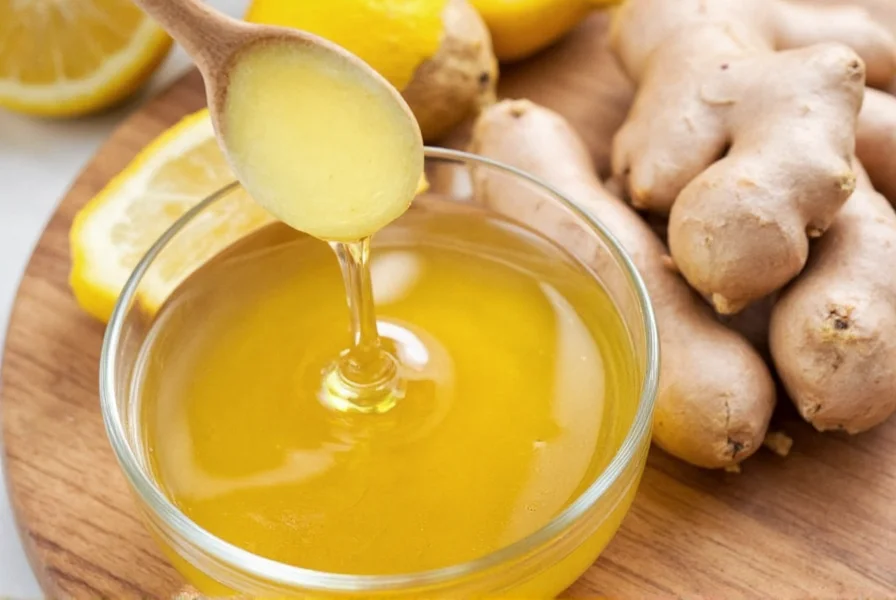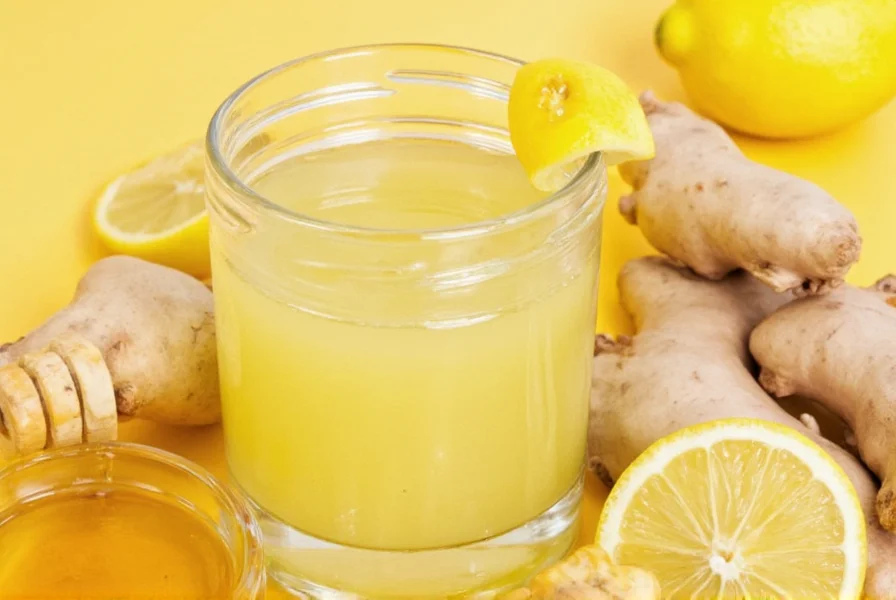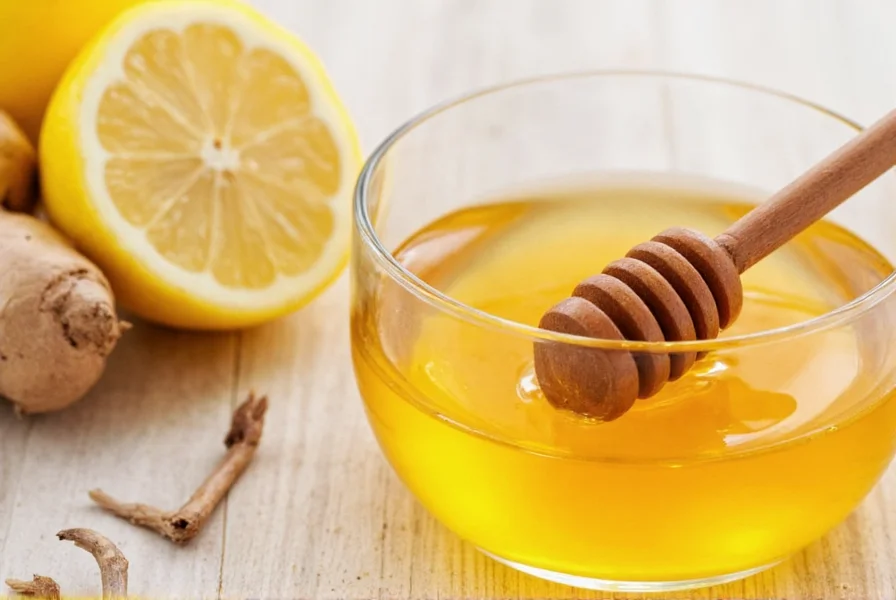
The Science Behind Ginger Root Lemon Honey
For centuries, cultures worldwide have used ginger root lemon honey as a natural remedy. Modern research validates many traditional uses while clarifying appropriate applications. This combination works through the synergistic effects of three powerful natural ingredients, each contributing unique bioactive compounds.
Individual Ingredient Benefits
Ginger (Zingiber officinale) contains gingerols and shogaols, compounds with proven anti-inflammatory and antioxidant properties. Clinical studies show ginger effectively reduces nausea and vomiting, particularly for pregnancy-related morning sickness and chemotherapy-induced nausea. The National Center for Complementary and Integrative Health confirms ginger's effectiveness for these purposes.
Lemon provides vitamin C and flavonoids that support immune function. While not a cure for the common cold, adequate vitamin C intake may slightly reduce cold duration according to research published in the Cochrane Database of Systematic Reviews.
Raw honey, particularly manuka honey, demonstrates antimicrobial properties and soothes irritated tissues. The World Health Organization recognizes honey as a potential remedy for coughs, especially in children over one year old.
Combined Effects
When combined, these ingredients create a remedy with multiple mechanisms of action:
| Ingredient | Primary Active Compounds | Documented Effects |
|---|---|---|
| Ginger root | Gingerols, shogaols | Anti-nausea, anti-inflammatory |
| Lemon | Vitamin C, flavonoids | Antioxidant, immune support |
| Raw honey | Hydrogen peroxide, methylglyoxal | Antimicrobial, tissue soothing |
Proper Preparation Methods
Creating effective ginger root lemon honey requires attention to ingredient quality and preparation technique. The most common preparation methods include:
Simple Ginger Lemon Honey Syrup
This basic preparation maximizes bioactive compound extraction:
- Peel and thinly slice 2 inches of fresh ginger root
- Cover with 1 cup of raw honey in a glass jar
- Add the juice of one organic lemon
- Seal tightly and let sit at room temperature for 24-48 hours
- Stir occasionally to distribute ingredients
The resulting syrup contains concentrated ginger compounds dissolved in honey, with lemon providing flavor and additional antioxidants. Store in the refrigerator for up to two weeks.
Hot Tea Preparation
For immediate relief of sore throats or congestion:
- Grate 1 teaspoon of fresh ginger root
- Add to 8 ounces of hot (not boiling) water
- Steep for 5-10 minutes
- Add 1-2 tablespoons of the prepared ginger lemon honey syrup
- Stir well before drinking
Using water that's too hot (above 140°F/60°C) can degrade beneficial enzymes in raw honey, reducing its therapeutic value.

Evidence-Based Applications
Research supports specific uses for ginger root lemon honey while clarifying limitations:
Sore Throat Relief
A 2020 study in Complementary Therapies in Medicine found that honey-based preparations significantly reduced throat pain and cough frequency compared to placebo. The combination of honey's soothing properties with ginger's anti-inflammatory effects creates a powerful remedy for irritated throat tissues.
Nausea Reduction
Ginger's effectiveness for nausea is well-documented. A systematic review in Nutrients (2021) confirmed ginger's efficacy for various nausea types. Adding lemon can enhance ginger's anti-nausea effects while making the remedy more palatable.
Immune Support
While ginger root lemon honey won't prevent or cure viral infections, its components provide supportive benefits during illness. Vitamin C from lemon supports immune cell function, ginger reduces inflammation, and honey soothes cough-related throat irritation.
Important Limitations and Precautions
Despite its benefits, ginger root lemon honey has important limitations:
Not a Medical Treatment
This remedy provides symptomatic relief but doesn't treat underlying infections or serious conditions. Consult a healthcare provider for persistent symptoms lasting more than 7-10 days, high fever, or difficulty breathing.
Age Restrictions
Never give honey to children under one year due to botulism risk. For young children, consult a pediatrician before use.
Potential Interactions
Ginger may interact with blood-thinning medications. Those with gallstone disease should consult a doctor before regular ginger consumption as it may increase bile production.
Quality Considerations
Raw, unprocessed honey retains more beneficial compounds than pasteurized varieties. Organic ginger and lemon reduce pesticide exposure. The quality of ingredients directly impacts the remedy's effectiveness.
Recommended Usage Guidelines
For optimal results with ginger root lemon honey:
- For sore throats: Take 1-2 teaspoons every 2-3 hours as needed
- For nausea: Consume 1 teaspoon when symptoms begin
- As immune support: Take 1 teaspoon daily during cold and flu season
Maximum daily intake should not exceed 4 tablespoons to avoid potential digestive discomfort from excessive ginger. Discontinue use if any adverse reactions occur.
Frequently Asked Questions
Can ginger root lemon honey cure a cold or flu?
No, ginger root lemon honey cannot cure viral infections like colds or flu. It may provide symptomatic relief for sore throats, coughs, and nausea associated with these illnesses, but it doesn't eliminate the virus. Rest, hydration, and proper medical care remain essential for recovery.
How long does homemade ginger lemon honey last?
When stored in an airtight container in the refrigerator, ginger root lemon honey typically remains effective for 2-3 weeks. The honey acts as a natural preservative, but fresh ingredients eventually degrade. Discard if you notice mold, fermentation bubbles, or off odors.
Is there a difference between using raw honey versus regular honey?
Yes, raw honey contains more beneficial enzymes, antioxidants, and potential antimicrobial compounds that are often destroyed during commercial processing and pasteurization. For maximum therapeutic benefit in ginger root lemon honey preparations, raw, unprocessed honey is recommended.
Can I use ginger root lemon honey if I have diabetes?
Those with diabetes should consult their healthcare provider before regular use. While the remedy contains natural sugars, moderate consumption (1-2 teaspoons occasionally) may be acceptable depending on individual blood sugar management. Monitor your glucose levels when trying new remedies.
What's the best time of day to take ginger lemon honey?
For nausea relief, take it when symptoms begin. For sore throats, use throughout the day as needed. Some people take a teaspoon in the morning for general wellness support. Avoid taking large amounts right before bed as the lemon content might cause heartburn in some individuals.











 浙公网安备
33010002000092号
浙公网安备
33010002000092号 浙B2-20120091-4
浙B2-20120091-4